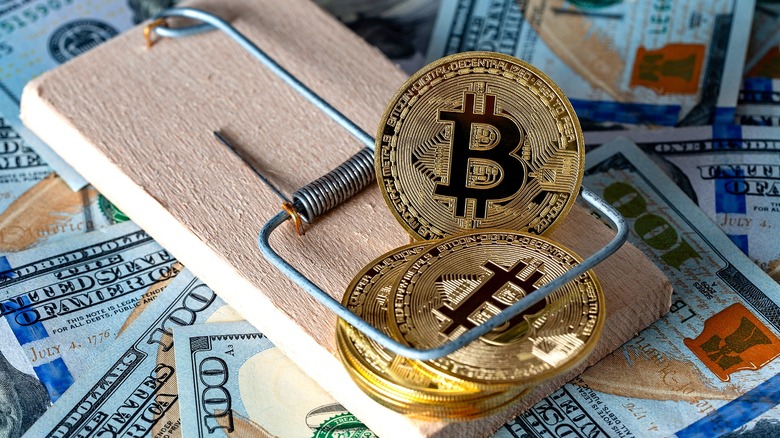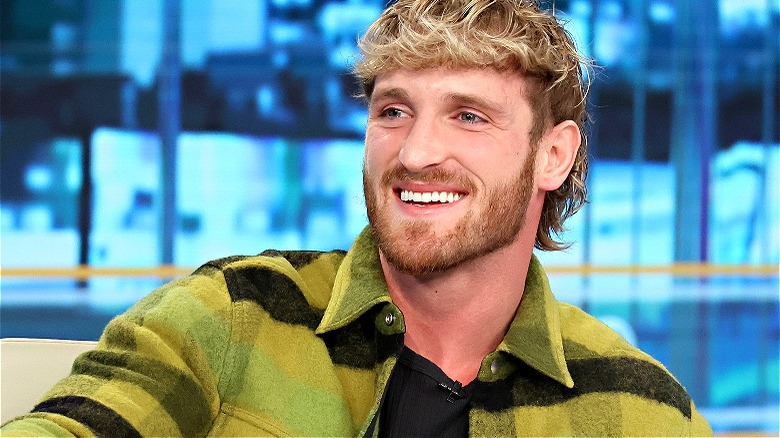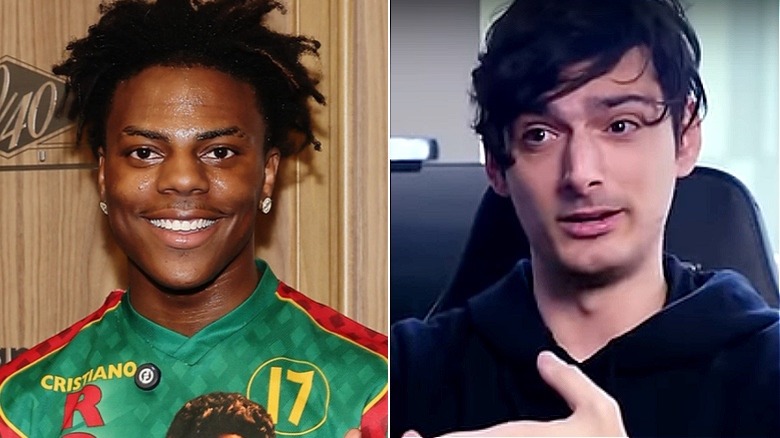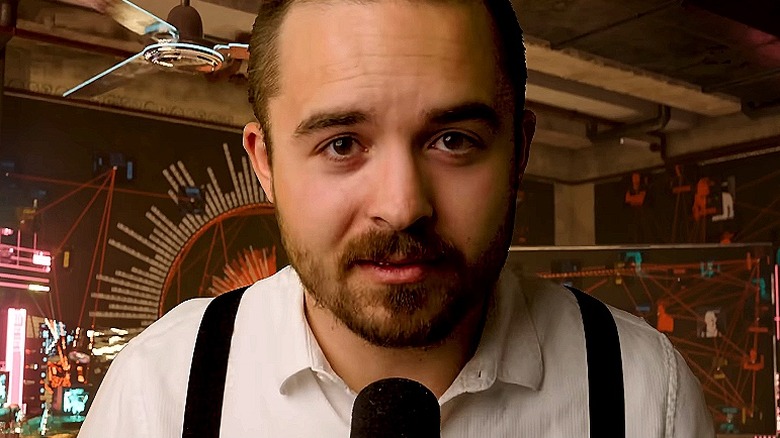Influencers Who Promoted Shady Crypto Scams
A little shine from a superstar can help light the way for investors. Of course, not all famous faces can be trusted, especially when it comes to cryptocurrency. FaZe Kay, IShowSpeed, Ice Poseidon: No, these aren't names of Pokémon cards that are worth a ton of money today. These are just a few influencers who promoted risky crypto scams. Influencers often act as celebrity spokespeople for new crypto coins, just like traditional celebrities provide endorsements for everything from sneakers to skin care. But while it's usually obvious that celebrities are paid in traditional advertising, that's not always the case in crypto.
We can all raise an eyebrow at the truth in advertising, the Federal Trade Commission has laws on the books to enforce it. However, because of crypto's own light amount of regulation, the application and interpretation of those laws can get murky, even when the potential to scam crypto investors is crystal clear.
Some influencers are veritable blockchain bandits, actively misleading their vast followings into some of the biggest crypto scams on record, all to turn a personal profit. The sketchiness of other influencers seems tame by comparison. Perpetrators like crypto YouTuber Ben Armstrong, of the advice channel Bitboy Crypto, simply accept payoffs from crypto companies, tout untrustworthy crypto as trustworthy, and get paid even if their followers lose money. So which influencers top the Most Wanted list for crypto crimes? And what is being done to stop them from striking again?
Logan Paul
Even the jokiest memecoin holds promise of getting rich quick (dogecoin, RIP). Scammers rely on this flash-in-the-pan frenzy to cash in on marks, and create it by partnering with influencers to lend projects legitimacy. Like back in 2021, when infamous influencer Logan Paul promoted Dink Doink, a memecoin, on his social media accounts. Paul's legions of fans raced to follow his crypto-savvy lead, unaware that Paul's favored investment was actually a project he was paid to promote.
Lawsuits were even brought against Paul for his promotion of CryptoZoo, an NFT-animal trading game. Paul hyped the game as a sound investment to his fans, sold 10,000 "Base Eggs," then jumped ship. He profited, all without initially mentioning he had a part cocreating the indefinitely delayed "game." Like Dink Doink, CryptoZoo's value crashed. Paul initially promised to pay investors back on their bad investments; however, that refund never came. Paul sought to dismiss a class action lawsuit in 2024, claiming he never scammed anyone.
Paul's brother, Jake Paul, also promoted crypto for secret pay. He paid a $400,000 fine in 2023 for failing to adequately disclose his paid partnership with crypto schemer Justin Sun, along with fellow influencers Lindsay Lohan and Lil Yachty. The SEC also held superstar Kim Kardashian to account for failing to properly disclose a paid partnership with EthereumMax (EMAX). In 2021, EMAX paid Kardashian $250,000 for an Instagram story post, and in October 2022, Kardashian agreed to pay a $1 million fine for not more obviously marking the post as an ad (via The Associated Press).
Those involved with the Save the Kids token
2021's "Save the Kids" token was marketed as an altcoin that would benefit children's charities. A who's who of young influencers, mostly from the esports brand FaZe Clan, promoted the coin, and for every coin purchased, partial proceeds were said to be donated to a children's charity. Influencers, including FaZe Kay, Nikan, Jarvis, RiceGum, and Teeqo, appeared in a "Save the Children"-esque commercial for the coin, and also promoted it on their social media channels. While Save the Kids seemed destined for greatness, it crashed upon launch.
The coin's marketing promoted an "anti-whale" element of the coin's code, which would prevent large stakeholders from selling off their coin within the first 24 hours of launch. Yet, some of the influencers involved dumped their presale shares within minutes of launch. How did they escape the anti-whale code? Coffeezilla, a YouTuber and crypto detective (who we'll get to later), uncovered that at the last minute, someone on the developer team changed the code to allow lightning-quick transactions.
Coffeezilla makes a strong case for the insider influencers being behind the pump-and-dump scam, including Frazier "FaZe Kay" Khattri, who promoted the coin and dumped his shares upon launch. Coffeezilla's investigation also implicates Khattri's former roommate Sam "Scam" Pepper as in on the scam, and the one who had the anti-whale code changed. Also, no real funds ever made it to the charities they were supposed to. No kids were saved — but some influencers' bank accounts might have been.
IShowSpeed and Ice Poseidon
A grasp of basic economics and ethics aren't always deal breakers for influencers or their fans — until a scandal breaks. Take, for example, Darren "IShowSpeed" Watkins, Jr. He was 17 years old in 2022 when he promoted Paradox Metaverse's play-to-earn crypto project to his millions of followers during a livestream. His fans, though, smelled a Ponzi-style rat, and bots subsequently jammed the stream's chat with warnings. While he tried to mute the stream's microphone, he failed to do so, so followers heard his panicked conversation with the Paradox team. Watkins, Jr. looked in over his head in the now-deleted stream. He has since denied being part of any scam, and apologized to his fans.
In a savvier operation, Paul "Ice Poseidon" Denino took hundreds of thousands of dollars from his fans in a crypto scheme. The streaming celebrity had previously joked that he could launch any coin, cash in on his fans buying it, then rug-pull the project. In 2022, Denino got serious. He marketed his own "CxCoin" platform to his fans and pulled around $300,000 from the coin's liquidity pool, thus killing the coin. Denino apparently bought a Tesla with the funds.
Denino has since denied the project was a scam with rationale widely mocked by his fans and critics alike. He also mocked his big CxCoin investors. Denino told Dexerto, "If somebody wants to gamble their life savings away like an idiot, then they're gonna learn the hard way. They have to take some responsibility eventually ... It's a dog-eat-dog world out there."
Who's holding influencers accountable?
Aside from fines and momentary cancellation, the influencers discussed above haven't faced any impactful legal consequences for their actions. This pattern feeds the scam artist beast: An influencer promotes a scammy coin, drives up prices, jumps ship, profits, apologizes, and repeats. So who is committed to breaking that pattern?
Several YouTube investigators work to hold scammer influencers accountable for their actions. Stephen "Coffeezilla" Findeisen is one such detective. His YouTube channel is dedicated to exposing crypto scammers via observation, blockchain investigation, and good old-fashioned public shame. For example, Findeisen traced countless digital wallet exchanges in the Save the Kids scandal to triangulate the key players behind the scam, and publicly pressured Ice Poseidon to pay his fans back. Findeisen and investigators like him bring needed common sense into the crypto-investing world, especially when it comes to disrupting influencer fan worship.
Regulators are also attempting to crack down on crypto crimes, and the larger-scale legal actions in the FTX collapse may light the way for future regulation. In 2021, the Department of Justice created the National Cryptocurrency Enforcement Team, and in 2023, NCET was revamped to better handle crypto-crime concerns. As Ari Redbord, a former federal prosecutor, told The Wall Street Journal, "If this is in fact the future, every prosecutor, every investigator, is going to need to understand these cases." With that said, until law enforcement catches up with the future, it appears as though citizen journalism will be the only thing standing in the way between crypto scam artists and their marks.



